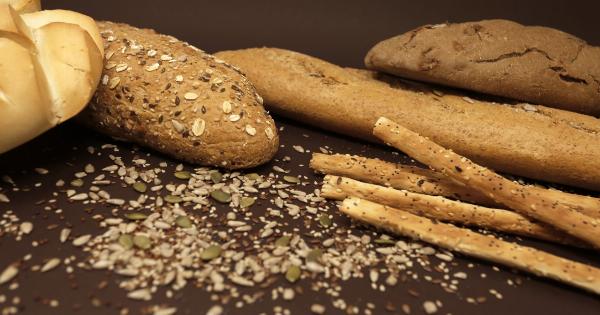Bread is a staple food in many diets around the world. It’s versatile, easy to make, and can be found in almost every bakery, supermarket, and corner store.
However, bread has gotten a bad reputation in recent years as being a cause of weight gain and other health issues. In this article, we will explore the relationship between bread and weight gain.
What Makes Bread So Popular?
Bread is popular worldwide because it’s filling, easy to prepare, and can be eaten with almost any type of meal. Bread comes in many different forms, from leavened to unleavened, and can be made with a variety of grains and flours.
Bread is also an excellent source of carbohydrates, which is why it’s so popular with athletes and people who need energy on the go.
The Caloric Content of Bread
One of the main reasons bread has a bad reputation when it comes to weight gain is its caloric content. Traditional white bread is high in calories and has very little nutritional value.
One slice of white bread can have between 70-100 calories, depending on the thickness of the slice. When you think about how quickly it can be consumed, it’s easy to see how bread can contribute to weight gain if eaten in excess.
Whole Wheat vs. White Bread
Not all bread is created equal when it comes to its nutritional content. Whole wheat bread, for instance, is much healthier than traditional white bread.
Whole wheat bread is made using whole grain flour, which means it contains fiber, vitamins, and minerals. White bread, on the other hand, is made using refined flour, which means it has been stripped of its nutritional content. As a result, whole wheat bread is a better option for people trying to lose or maintain their weight.
Bread and Portion Control
One of the main reasons bread is associated with weight gain is due to portion control. People often eat more than the recommended portion size, which can lead to overeating and contribute to weight gain.
The recommended portion size for bread is one to two slices per meal, depending on its thickness and nutritional content. It’s essential to pay attention to the portion size and nutritional content of bread to avoid consuming excess calories.
Bread and a Balanced Diet
While bread can contribute to weight gain if consumed in excess, it’s an essential part of a balanced diet. Carbohydrates are an essential macronutrient that provides energy for the body.
However, it’s essential to choose healthy forms of carbohydrates, such as whole wheat bread, instead of refined carbohydrates, such as white bread. By incorporating bread into a balanced diet and consuming it in moderation, it can provide numerous health benefits such as improved digestion and heart health.
Bread and Gluten Intolerance
Gluten is a protein that’s found in many grains, including wheat, rye, and barley. Some people have a condition called celiac disease, which is an autoimmune disorder that causes damage to the lining of the small intestine when gluten is consumed.
Other people may have a gluten sensitivity, which means they may experience symptoms such as bloating, diarrhea, and abdominal pain when they consume gluten. For these people, it’s essential to choose gluten-free bread options, which are widely available in most grocery stores.
Conclusion
Bread is a staple food in many diets worldwide and can provide numerous health benefits when consumed in moderation.
While bread can contribute to weight gain if eaten in excess, it’s essential to choose healthy forms of bread, such as whole wheat bread, and practice proper portion control. By incorporating bread into a balanced diet, individuals can improve their digestion and heart health and maintain a healthy weight.































